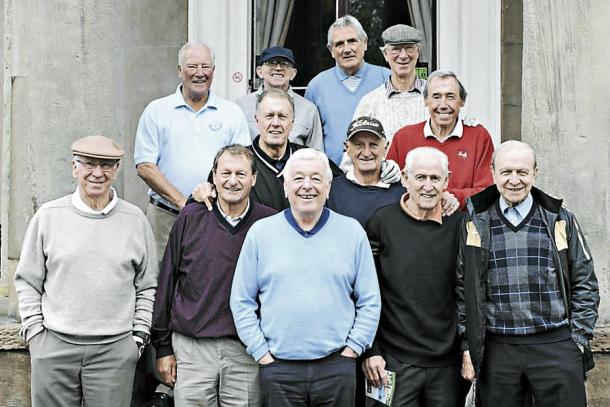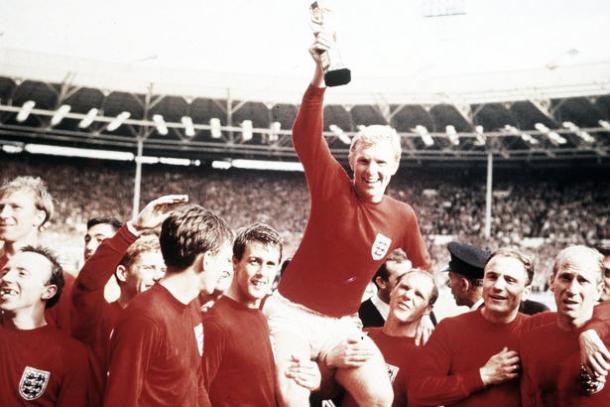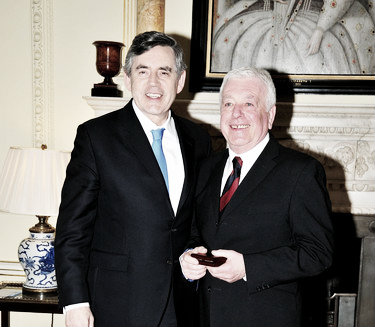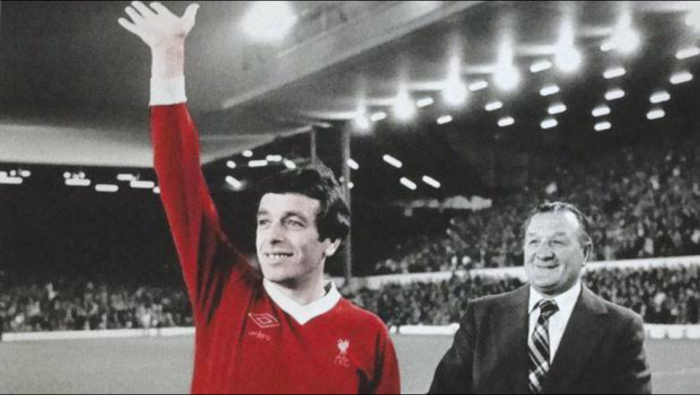Ian Callaghan is one of the most decorated football in domestic football having captured two European Cups and two FA Cups, six league titles and many more across a 22-year playing career.
The 74-year-old also achieved success while representing his country, as he was a part of the England squad that lifted the World Cup on home soil in 1966.
Despite featuring in just one game in the tournament, Callaghan was still an important cog in Alf Ramsey's machine and he remains as just one of 22 Englishman to be recognised as World Cup winners.
On being a part of that squad

With so many great names establishing themselves as stars in the early 1960s, Callaghan was able to assert himself as one of the best, so much so that he was selected as one the 22 representatives of the England national team at the 1966 World Cup.
The retired Liverpool midfielder spoke about how the selection process was made and how two of his former teammates were ultimately dropped from the final squad.
"It was 28 players to begin with and we all went to Lilleshall to train and then they dropped six players," he explained. "And funny enough there were two Liverpool players that they dropped, Gordon Milne and Peter Thompson."
Callaghan still felt nervous for his place as he revealed it would not be until the end of the week-long training process that the manager would announce the 22 wearing the Three Lions badge on their shirt at the tournament.
He added: "It was not until the end that he would announce the 22 who would be in the squad, it was exciting to think you know you could be in the World Cup and England squad especially in this county."
On England's chances at the World Cup
With the squad representing their country in the capital London, this was a "big advantage" according to Callaghan as the faithful followers surpassed the "full" capacity of 82,000 attendees at the Old Wembley for every match, with the highest attendance attraction; England versus France in their final group game with the recorded attendance over 98,000.
On playing on home turf, Callaghan said: "Playing at home was a big advantage, funny enough we never left Wembley, [we] played every game at Wembley so that was a big advantage."
With England's squad compiling of some of the best players within the game, the man who holds the record for the most appearances for Liverpool with 857 said this was the biggest advantage that his team possessed.
Callaghan continued: "When you look back and see the players that England had then, world class players like Bobby Charlton and Bobby Moore and probably the best goalkeeper in the world Banksy [Gordon Banks], Ray Willson, Jimmy Greaves, all of these players and Roger Hunt, it was a tremendous team, it really was."
On players that stood out

The list of star players that existed within England's squad was huge let alone the rest of the players included in the squads of the visiting nations, such as West Germany's Franz Beckenbauer, Brazil's Pele and Portugal's Eusébio.
With so many names, Callaghan immediately insisted that Moore was the instrumental figure within the tournament winning side, but said that all the players within the side all played a "great part."
He declared: "I think we all played a great part obviously because we went on to win the World Cup but I think it was Bobby Moore because he was made the player of the tournament."
Moore was named in the XI of the tournament for 1966 and was also rewarded with the BBC Sports Personality of the Year award, he led the England side to eventual victory in the same year and in 2007 the PFA declared him Player of the Century.
Callaghan also singled out Bobby Charlton who scored three goals to help the Three Lions' progress to the final, which he said were "fantastic" and "great memories."
With the realization kicking in regarding just how long ago the momentous occasion was, he gasped "God, a long time", with this 50 years since the triumph.
On missing out on the final
Despite being a mainstay in the Liverpool squad, Callaghan was a fairly new figure amongst the England set up and struggled to force his way into Alf Ramsey's plans as he featured in just one game and missed out on a place in the final.
On his absence from the startin eleven, Callaghan revealed: "He (Ramsey) was playing with wingers for spell, he played with John Kinnelly one game, he played with Terry Paine one game and he played me against France and I thought I had a reasonable game, but what happened was he decided not to play with wingers, you can’t blame him because at the day we went on to win the World Cup."
The veteran, fortunately, does not hold a grudge towards his ex- manager as his national side went on to win the entire tournament, Callaghan did however say he was not "disappointed" and that "at the end of the day" was just happy to be a "member" of the "England squad."
On missing out on a medal

In days of old, players had to feature within the final in order to qualify to be rewarded with a medallion upon winning the tournament, as Callaghan was not one of those men who featured he ultimately missed out.
He said: "They initially only gave out 11 so you could have played all the way up to the final, got injured at the final and missed out on a medal, it was not until 43 years later that they decided to give the other 11 a medal, which I was very proud of, my own World Cup medal."
Rather than do a signature John Terry and dress up in full kit to receive his medal, Callaghan was honoured with the medal at Downing Street in 2009 by then Prime Minister Gordon Brown following FIFA's decision to award all of the winning squad players from 1930 - 1974 with recognition.
On finally being awarded the medallion, Callaghan said: "There had been talk over the years about, because we were part of the World Cup and the team in ’66 so we should have got a medal, different people had put it forward so after 43-years then there was talk of it from the papers and what have you, so I think the other 11 were very happy when it happened."









































